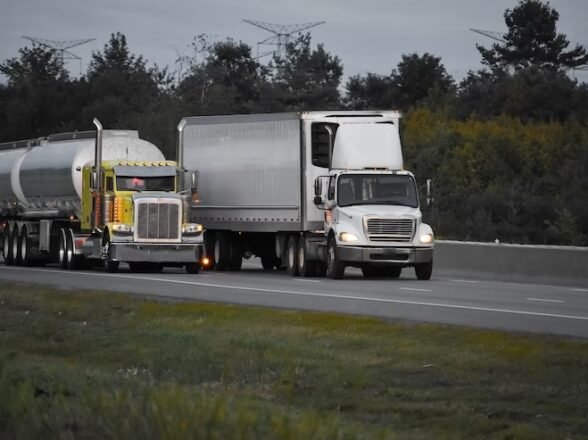Truck Dispatcher Responsibilities Every Trucker Must Know

In the world of trucking, efficient communication and coordination are vital to keeping goods moving smoothly from point A to point B. This is where truck dispatchers play a pivotal role. Truck dispatchers are the unsung heroes behind the scenes, ensuring that truckers reach their destinations safely and on time. To shed light on the responsibilities of truck dispatchers and why they are crucial to the industry, let’s delve into the key aspects of their job.
- Route Planning and Navigation: One of the primary responsibilities of a truck dispatcher is to plan the most efficient routes for truckers. This involves considering factors like distance, traffic, road conditions, and delivery schedules. Dispatchers must also provide accurate navigation instructions, helping drivers avoid obstacles and reduce travel time. Their expertise in routing can significantly impact fuel efficiency and delivery speed.
- Load Assignment: Dispatchers assign loads to truck drivers based on various criteria, such as the type of cargo, weight restrictions, and driver preferences. They must ensure that each truck is properly loaded and balanced to comply with safety regulations. Overloading or uneven distribution of cargo can lead to accidents or damage to the truck.
- Communication: Effective communication is at the core of a dispatcher’s role. They maintain constant contact with truck drivers, providing updates on routes, weather conditions, and any potential issues. Dispatchers are also responsible for relaying important information to drivers, such as changes in delivery schedules or customer requirements. Clear communication ensures that drivers can make informed decisions on the road.
- Problem Solving: In the unpredictable world of trucking, challenges are bound to arise. Whether it’s a mechanical breakdown, adverse weather, or a sudden change in delivery plans, dispatchers must be quick thinkers. They work to find solutions that keep shipments on track, which might involve arranging alternative routes, scheduling repairs, or reassigning loads to other drivers.
- Compliance and Regulations: Truck dispatchers must have a strong understanding of the legal and regulatory requirements in the trucking industry. They ensure that drivers adhere to hours-of-service regulations, maintain accurate records, and have the necessary permits and licenses. Non-compliance can result in penalties, fines, and even the suspension of a driver’s or company’s operations.
- Customer Relations: Dispatchers often serve as the bridge between trucking companies and customers. They must maintain positive relationships with clients by ensuring that deliveries are made on time and addressing any concerns or inquiries promptly. Satisfied customers are more likely to become repeat clients and contribute to a trucking company’s success.
- Emergency Response: When accidents, breakdowns, or other emergencies occur on the road, dispatchers are the first point of contact. They must coordinate emergency services, provide support to drivers, and work to minimize disruptions to the delivery schedule. Quick and efficient response in these situations is crucial for driver safety and cargo protection.
In conclusion, the role of a truck dispatcher is multifaceted and essential to the smooth operation of the trucking industry. These professionals are responsible for route planning, load assignment, communication, problem-solving, compliance, customer relations, and emergency response. Their dedication and expertise contribute to the success and safety of truckers on the road. Truck dispatchers are the unsung heroes who work tirelessly behind the scenes, ensuring that goods reach their destinations efficiently and reliably.
Related posts
Top Mistakes to Avoid as a Truck Dispatcher
The Benefits of Truck Dispatch Services
Recent Tweets
Subscribe
Calendar
| M | T | W | T | F | S | S |
|---|---|---|---|---|---|---|
| 1 | 2 | 3 | 4 | 5 | 6 | 7 |
| 8 | 9 | 10 | 11 | 12 | 13 | 14 |
| 15 | 16 | 17 | 18 | 19 | 20 | 21 |
| 22 | 23 | 24 | 25 | 26 | 27 | 28 |
| 29 | 30 | 31 | ||||






